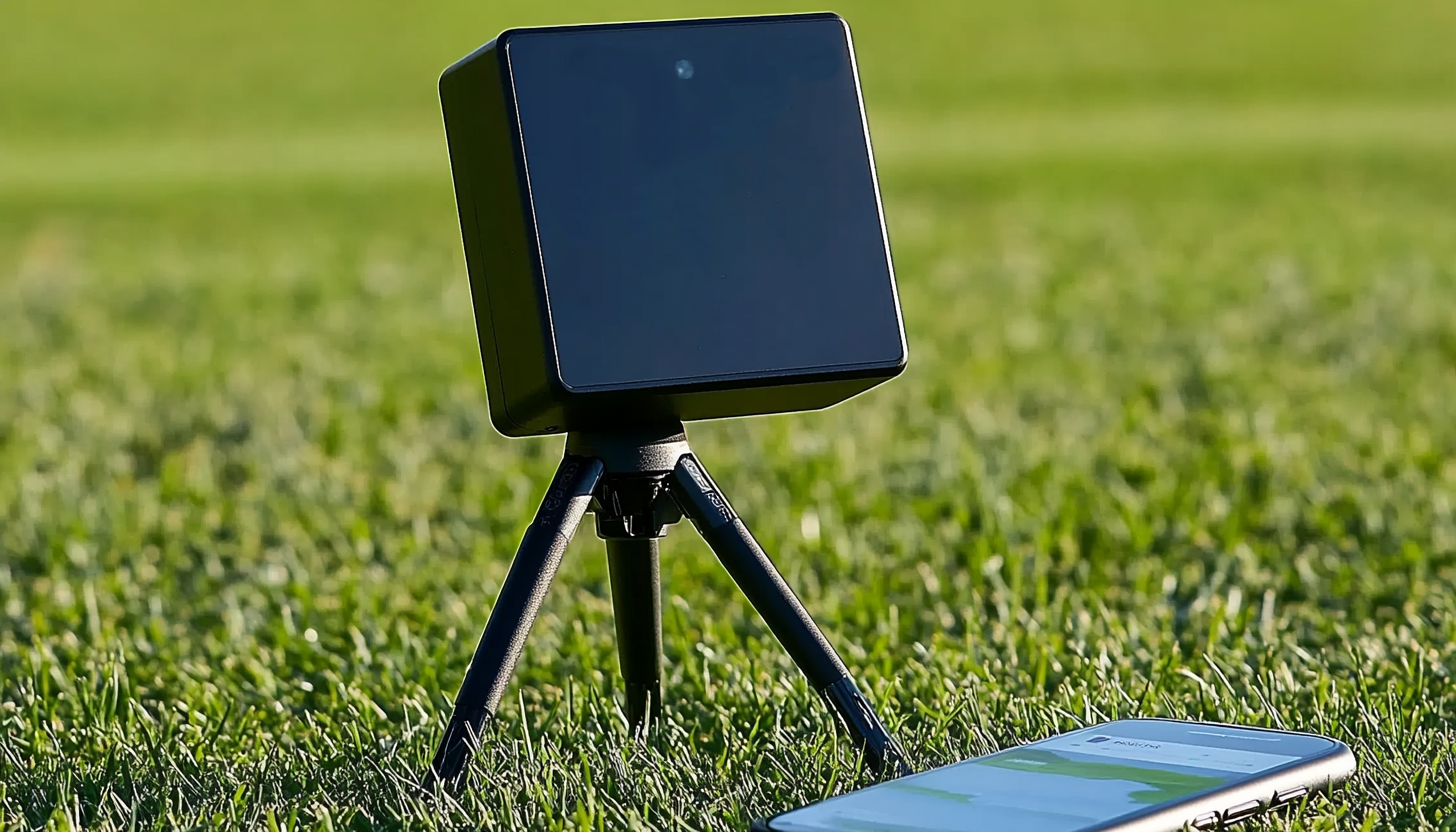
Golf swing analyzers are technological devices or software that capture and analyze various aspects of a golfer's swing to provide data-driven feedback for game improvement. These tools use sensors, cameras, or mobile devices to measure metrics like club head speed, swing path, face angle, tempo, and impact position. Golf swing analyzers help golfers enhance their scores without extensive course time by identifying swing errors and providing feedback, often in indoor settings.
Definition and Purpose of Golf Swing Analyzers
Golf swing analyzers are designed to provide golfers with objective, quantifiable data about their swing mechanics. By using advanced technology, these tools offer insights that were previously only available through professional coaching or extensive practice.
The primary purposes of golf swing analyzers include:
- Providing data-driven feedback for game improvement
- Measuring key metrics of the golf swing
- Helping golfers enhance scores without extensive course time
- Identifying swing errors and providing feedback in indoor settings
How Golf Swing Analyzers Function
Golf swing analyzers typically capture information about a player’s swing using a variety of technologies, including sensors like accelerometers or gyroscopes, cameras, or a golfer’s existing mobile or wearable devices.
Essential Metrics Measured by Golf Swing Analyzers
Golf swing analyzers measure a wide range of metrics to provide a comprehensive analysis of a golfer's swing. Some of the essential metrics include:
- Club Speed/Club Head Speed: Velocity of the club head before impact
- Peak Hand Speed: Velocity of the hands at their fastest point
- Swing Tempo: Ratio between backswing and downswing times
- Face Angle at Impact: Direction of the club face at impact
- Attack Angle: Angle of club approach at impact
- Launch Angle: Angle of ball's ascent after impact
- Spin Rate: Ball spin in revolutions per minute (rpm)
- Smash Factor: Ball speed divided by club head speed (energy transfer efficiency)
- Body alignment, stance, hand position, and head movement
Types of Golf Swing Analyzers
There are several types of golf swing analyzers available to suit different needs and preferences:
- On-course analyzers: Track every shot during a round
- Launch monitors: Track club head and ball data using radar technology
- Practice swing analyzers: For home, range, or putting green use
- Wearable devices: Provide real-time bio-feedback
- App-based analyzers: Use AI and video analysis with smartphone camera
How Easy Is It to Use a Golf Swing Analyzer?
Golf swing analyzers are generally designed to be user-friendly, even for those who aren't tech-savvy. Many models feature simple setup processes, such as attaching a small sensor to your club or glove. They typically come with intuitive smartphone apps that have clear, easy-to-understand interfaces. Automatic swing detection is a common feature, eliminating the need to manually record each swing. These devices often provide real-time feedback, allowing for immediate adjustments during practice. Many also offer clear visual representations of data, such as 3D swing paths or color-coded metrics.
Keep in mind - ease of use can vary depending on the specific model and its features. For instance, some of the more advanced analyzers usually have a steeper learning curve but offer more detailed analysis. It's important to choose a model that matches your comfort level with technology and your specific needs as a golfer.
Benefits of Using Golf Swing Analyzers
Golf swing analyzers offer numerous benefits to golfers looking to improve their game:
- Instant Feedback: Real-time data for immediate adjustments
- Data-Driven Insights: Understand strengths and areas for improvement
- Tracking Progress: Record and analyze swings over time
- Enhanced Practice Efficiency: Maximize training time with targeted feedback
Top-Rated Golf Swing Analyzers
Several golf swing analyzers have gained popularity and positive reviews from golfers and experts. Here are some of the top-rated options:
1. Blast Golf Swing Analyzer ($179.95)
Popular for its focus on putting and full-swing analysis, this device is highly regarded for its ease of use and real-time feedback. It measures key data points such as timing and tempo of your stroke, and it is particularly effective for improving speed control on the greens. It also allows you to record and analyze your swing videos.
2. DeWiz Training Aid ($599.00)
Praised for its ability to track body movements, this analyzer is trusted by several major champions, including Vijay Singh and Annika Sorenstam. It is a wearable sensor resembling a smartwatch that provides feedback on your swing, helping you make more effective swing changes. It is ideal for golfers interested in understanding their body mechanics during the swing.
3. Arccos Caddie Golf Performance Tracking System ($374.98)
Recognized for its extensive data collection and user-friendly interface, this system tracks every shot you hit throughout a round, providing detailed analytics on your game. It includes GPS tracking and offers Tour-level analytics, making it a favorite among golfers who play frequently.
These analyzers have been well-received by users for their accuracy, ease of use, and helpful features. However, it's important to consider your specific needs and budget when choosing a golf swing analyzer.
Factors to Consider When Choosing a Golf Swing Analyzer
When selecting a golf swing analyzer, consider the following factors:
- Types of metrics measured
- Accuracy of data
- Real-time feedback and instant analysis capabilities
- Ease of use
- Compatibility with existing devices
Cost of Golf Swing Analyzers
Golf swing analyzers vary in price depending on their features and capabilities:
- Basic models: $50-$100
- Mid-range options: $100-$300
- Advanced/premium models: $300-$700+
- Portable launch monitors: $300-$2000
Depending on the specific monitor you consider, keep in mind that there may also be ongoing costs associated with the analyzer, like subscription services that may be specific to each device.
Limitations of Golf Swing Analyzers
While golf swing analyzers offer many benefits, they also come with certain limitations. Beginners may find themselves overwhelmed by the sheer amount of information these devices provide. In some cases, the data generated by these devices might need expert interpretation from a professional. Even without a professional, there can be potential extra costs associated with detailed analysis, often in the form of subscription services. Some analyzers may require additional practice time just for setup.
Where to Purchase Golf Swing Analyzers
Golf swing analyzers for home use are readily available through various channels. Golfers can find these devices at golf pro shops, specialty sports stores, and online retailers. For those seeking more advanced systems, professional-grade golf swing analyzers can typically be found at golf training centers and some high-end golf clubs.
Conclusion: Are Golf Swing Analyzers Essential for Serious Golfers?
While golf swing analyzers have become increasingly popular and offer valuable insights, they are not universally considered essential equipment for serious golfers. However, they are becoming an important tool for many players looking to improve their game efficiently.
Ultimately, whether a golf swing analyzer is essential depends on the individual golfer's goals, learning style, and resources. For those serious about improving their game and who appreciate data-driven insights, a swing analyzer can be a valuable addition to their golf equipment. However, it's important to remember that these tools are most effective when used in conjunction with professional instruction and regular practice.
